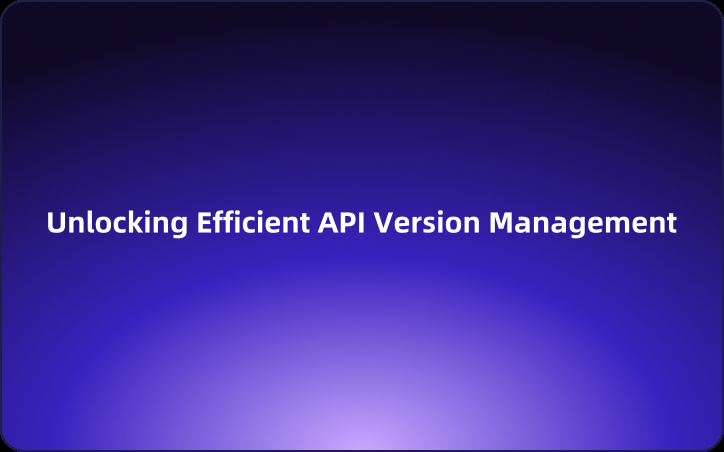My Journey from Postman to EchoAPI: Unlocking Efficient API Version Management
As a developer, I previously relied on Postman for API management. However, as the complexity of our projects skyrocketed, I began to realize that Postman struggled to keep up with my version management needs.
In the world of modern software development, managing and maintaining APIs is a fundamental aspect of building successful projects. Its importance continues to grow, especially when multiple developers collaborate on a project. As a developer, I previously relied on Postman for API management. However, as the complexity of our projects skyrocketed, I began to realize that Postman struggled to keep up with my version management needs.
Recently, I stumbled upon a new tool —— EchoAPI. It not only supports the tracking of API versions but also offers the ability to compare differences between versions. This functionality felt like a gateway to a new world, making my work significantly easier.
My API Version Management Journey with Postman
In Postman, I managed API versions primarily in the following ways:
1.Collection Management: I created separate request collections for different API versions, such as API-v1 and API-v2. This approach helped me easily distinguish between different versions and avoid confusion.
2.Environment Variables: To ensure that each developer and task had independent configurations, I set up different environment variables. This reduced the impact of one user’s changes on another.
3.Team Workspace: I took full advantage of Postman's team workspace feature, inviting team members to collaborate. However, the lack of a clear version history often left us lost in past changes during debugging sessions.
The Limitations of Postman
While Postman offers a range of basic features for API management, it falls short in terms of tracking version history:
-
Low Transparency: It’s difficult to view the historical requests and responses, which can create confusion during debugging as team members struggle to understand API changes.
-
Compatibility Issues: After updates, older applications may encounter compatibility problems, and the absence of clear historical records makes troubleshooting challenging.
-
Cumbersome Documentation: Each API change needs to be manually documented, which is prone to omissions and increases workload.
-
Lack of Difference Comparison: Updating versions without the ability to quickly compare differences between versions can lead to confusion and mistakes.
Amidst my frustrations, I discovered a new API management tool —— EchoAPI. It not only supports tracking historical versions but also offers the ability to compare differences between them—what a revelation!
Advantages of the EchoAPI
1.Historical Version Tracking: The new tool enables me to easily access past versions of the API, allowing for quick identification of specific requests and responses. This greatly aids in understanding the evolution of the API.
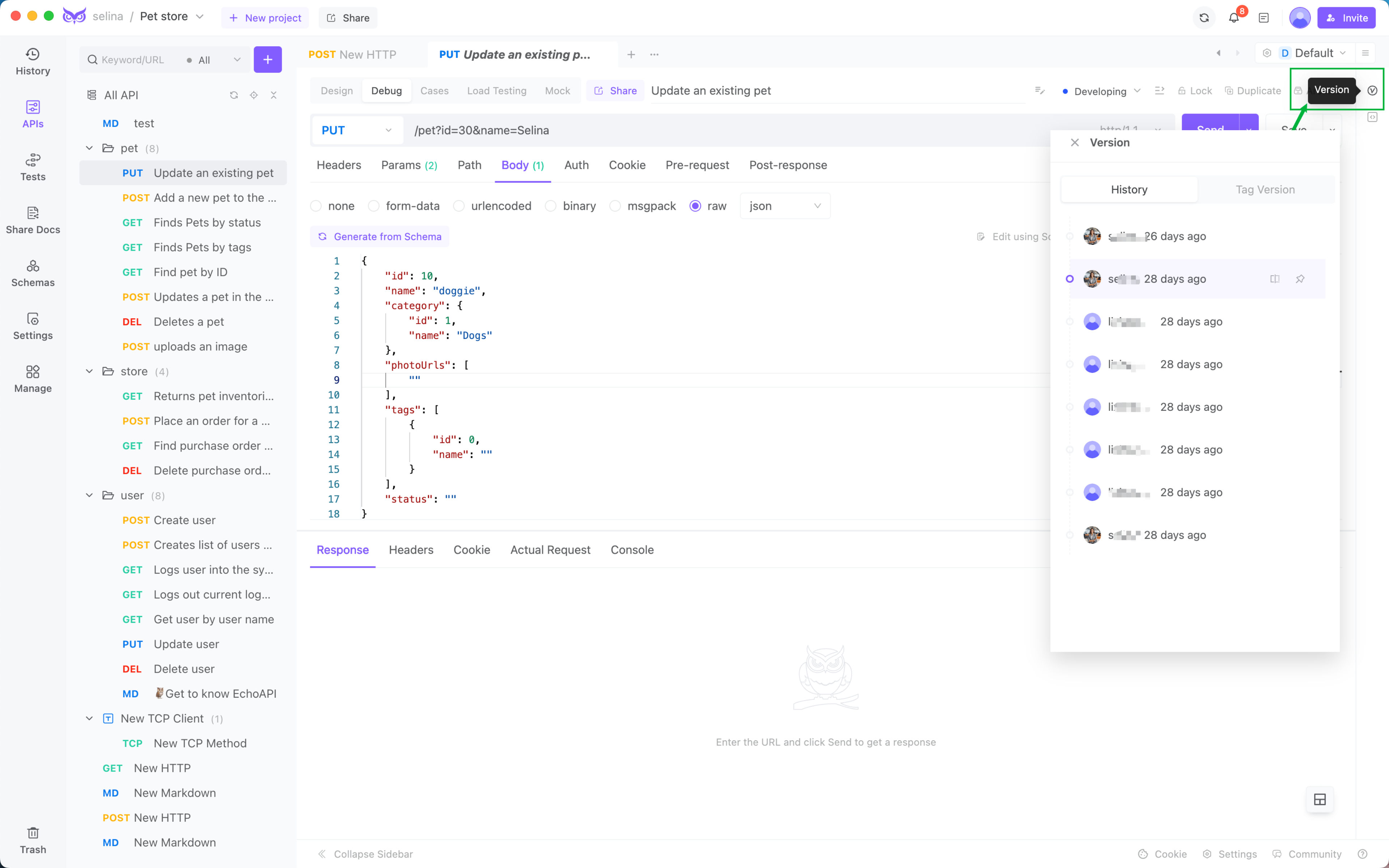
2.Difference Comparison: When updating versions, it allows one-click comparison of differences between versions, making it easy to identify changes. This feature is particularly beneficial for testing and validation.
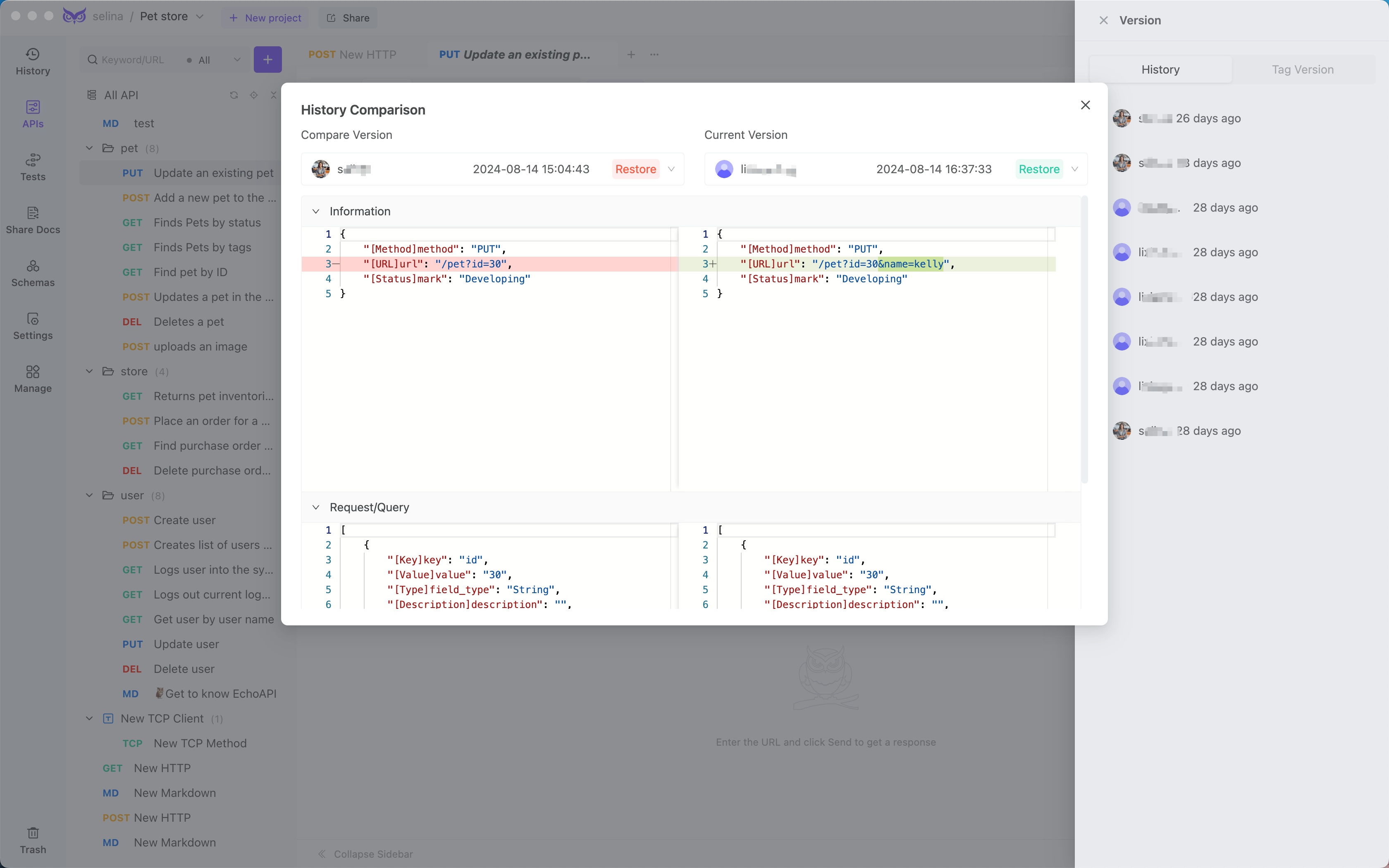
3.Automatic Change Logs: This tool automatically records change logs, eliminating the need for manual documentation and ensuring that team members are aware of every update.
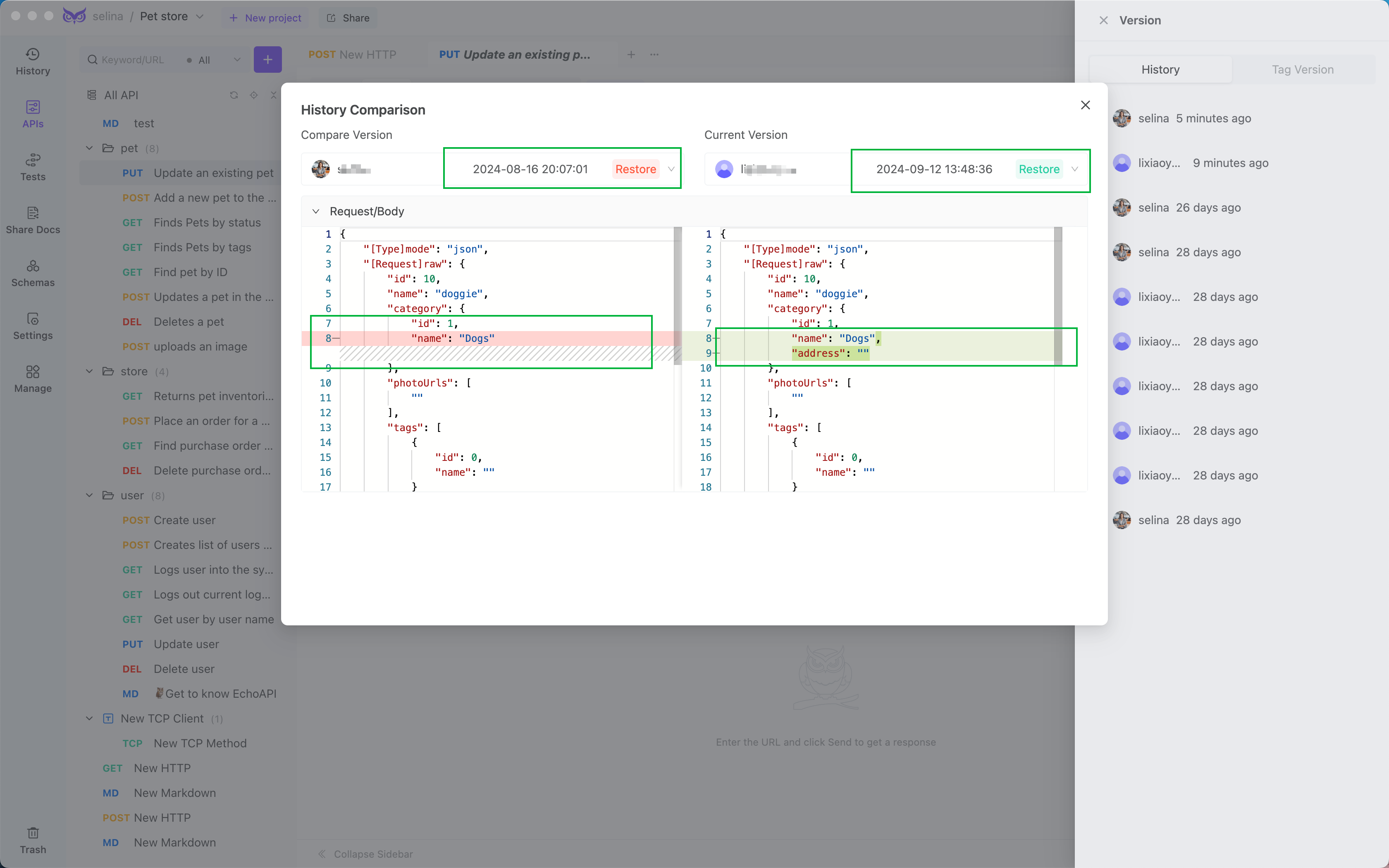
4.Enhanced Collaboration: Real-time version control and collaborative features ensure that all team members maintain consistency while updating APIs, significantly reducing communication overhead.
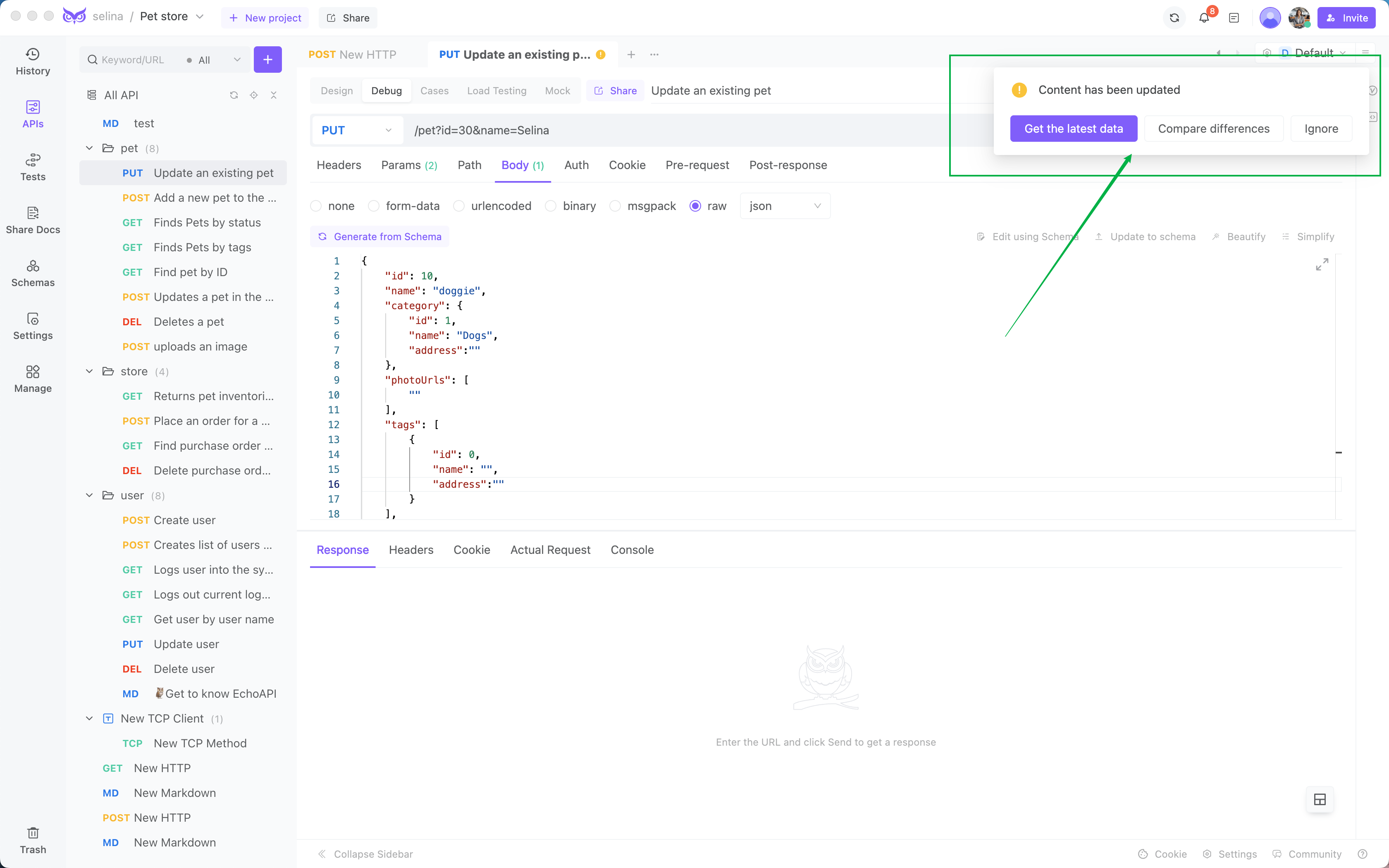
Conclusion
Switching from Postman to EchoAPI has not only enhanced my technical capabilities but also streamlined my workflow. The ability to track historical versions and compare differences has greatly improved my efficiency and accuracy. I no longer waste time on the trivialities of version management and can focus on what truly matters—development.
As development environments become more complex, choosing the right API management tool is essential. I believe that with ongoing technological advancements, we will continue to see the emergence of excellent tools that bring even greater convenience and support. I hope you find the right API management tool for yourself, making your development process smoother and more efficient!




 EchoAPI for VS Code
EchoAPI for VS Code

 EchoAPI for IntelliJ IDEA
EchoAPI for IntelliJ IDEA

 EchoAPl-Interceptor
EchoAPl-Interceptor

 EchoAPl CLI
EchoAPl CLI
 EchoAPI Client
EchoAPI Client API Design
API Design
 API Debug
API Debug
 API Documentation
API Documentation
 Mock Server
Mock Server







